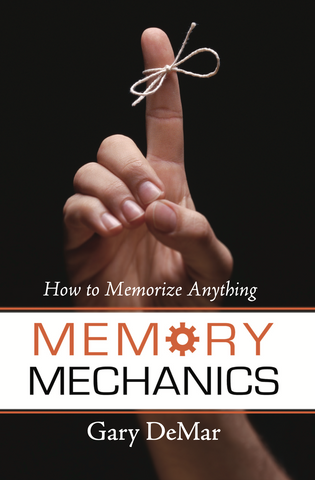Gary points out that making mental connections between things that interest you is a helpful way to learn and remember new things.
The brain is a magnificent creation. A typical adult’s brain contains fifteen billion to one hundred billion neurons. If we accept the lower estimate, this means that you and I can remember two-to-the-ten-billionth-power bits of information. How big is this number? It would take you ninety years to write out the number if you wrote a zero per second. If we take the larger number of neurons, this would be equivalent to ten billion encyclopedia pages of information. The brain is a big place in a very small space.
Some see the brain as a highly evolved machine. It’s not. There is something unique about the human brain and its relationship with the mind. The mind picks, evaluates, sorts, compares, discards, and formulates stored information in less than a split second. An evaluation process goes on in the mind that dumb atoms could not produce and no computer can match.
As scientists learn more about memory, they are beginning to realize that there is no single entity called “memory.” Consider an amnesiac. Clive Wearing once was an expert on Renaissance music and a producer for the British Broadcasting Corporation (BBC). Not long ago he came down with a rare form of encephalitis, an inflammation of the brain, which left him with a memory span of only a few seconds. He cannot recall a single event in the past. He couldn’t tell you what he just had for lunch, even if he had eaten the meal ten minutes before. But not all his memory patterns have been wiped out. He can sing and conduct a choir. His musical ability is still intact. Wearing’s wife, Deborah, says he “is trapped forever in the groove of a scratched record.”
While it’s important to understand what memory is, it’s more important to understand how memory works and how to benefit from its built-in system designed for memorization. We all want a better memory, and there are methods that have been proven to work for everyone.

Memory Mechanics
You don't have to be a genius to develop a great memory. It's all about technique. Memory Mechanics shows how memory works and develops proven methods to make learning new material a breeze. A good memory is not just for the young. Anyone at any age can apply the system found in Memory Mechanics to improve even the most stale and forgetful memory.
Buy NowGary gives a quick update on the recent donation matching challenge, and then discusses a listener question about his research methods. Gary has been doing this a long time (which helps of course), but he also points out that making mental connections between things that interest you is a helpful way to learn and remember new things.

